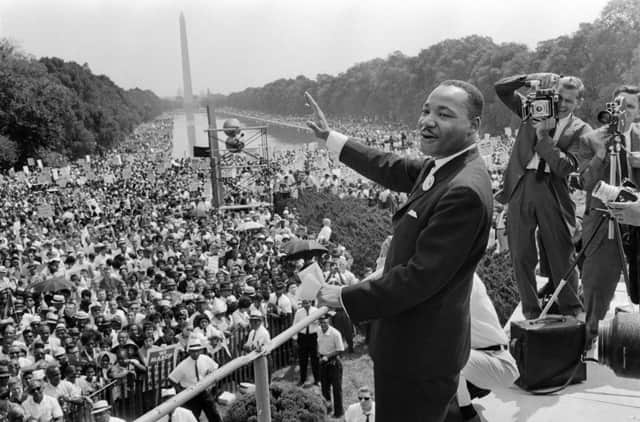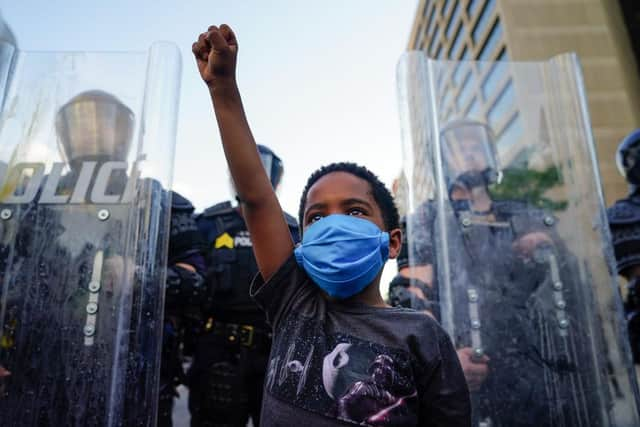Who killed Martin Luther King Jr? Why the minister was assassinated - and why his speeches are being quoted during Black Lives Matter protests


George Floyd – an African-American man – was handcuffed and lying face down on a city street as white American Minneapolis police officer Derek Chauvin kneeled on his neck.
Chauvin’s knee remained there for nearly 9 minutes despite Floyd’s repeated pleas of “I can’t breathe”.
Advertisement
Hide AdAdvertisement
Hide AdThe fallout from this most awful of racially aggravated events has been far reaching, with dramatic clashes between protesters and police forces across many American cities over the past week.


Demonstrations have been seen in countries across the world, despite much of the planet still under some form of lockdown from coronavirus.
How does Martin Luther King relate to George Floyd?
There have been plenty of stirring words and images that have become synonymous with the protests and demonstrations over the past week.
Obviously, King’s struggle for equal civil and human rights relates directly to current events happening in America, but in recent days, words from his iconic speeches have taken on a new meaning.
Advertisement
Hide AdAdvertisement
Hide Ad"In the end, we will remember not the words of our enemies, but the silence of our friends," King once said, a profound statement that has been trending on Twitter recently.
But it’s another of King's statements that’s finding even more renewed pathos in recent days:
"In the final analysis, a riot is the language of the unheard."
What does it mean?
Reverend King uttered those famous words during his "Other America" speech at Stanford University in 1967.
Advertisement
Hide AdAdvertisement
Hide AdHe was attempting to explain the cause of rioting to a mostly white audience when he said: "Let me say as I've always said, and I will always continue to say, that riots are socially destructive and self-defeating.
"But in the final analysis, a riot is the language of the unheard."
Though King famously drove a message of nonviolent activism, it was his way of acknowledging that while destructive acts like riots were “self-defeating”, there was always reason behind them.
A reason that leaders would do well to observe and change.
“Darkness cannot drive out darkness; only light can do that,” King said in the same speech. “Hate cannot drive out hate; only love can do that.”
Who killed Martin Luther King Jr?
Advertisement
Hide AdAdvertisement
Hide AdKing was assassinated on April 4, 1968 in Memphis. He was shot at the Lorraine Motel in Memphis, Tennessee, and died an hour later in hospital.
He was killed by white supremacist James Earl Ray, a fugitive from Missouri State Penitentiary who was arrested 8 June 1968 at Heathrow Airport, and extradited to the United States, where he was charged with the crime.
He pleaded guilty and was sentenced to 99 years in Tennessee State Penitentiary, and made many attempts to withdraw his guilty plea and be tried by a jury, but was unsuccessful; he died in prison in 1998.
